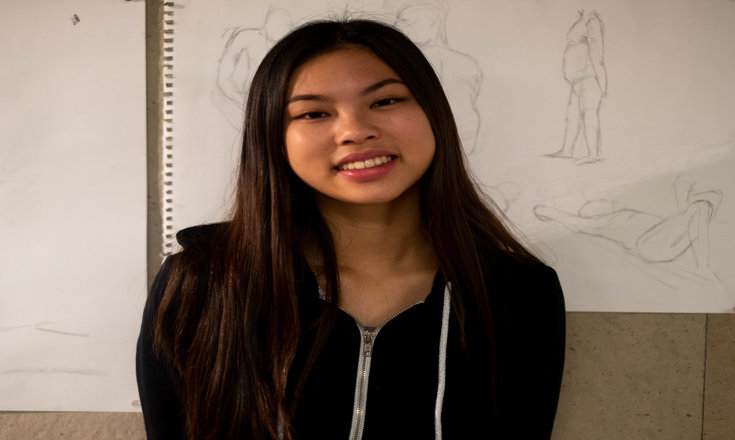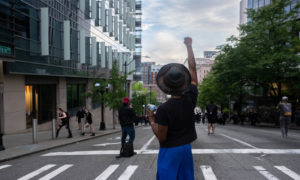by Megan Louie
The most common analysis of Asian-Americans is that we’re smart, right? Being an Asian student, a “model minority,” can be difficult because claims like this actually limit our livelihoods and our future aspirations. Many argue that the name model minority is misleading because performance scores do not accurately represent many of the biases against Asian-Americans that persist today. According to Harvard Law School, “The model minority argument often privileges generalizations based on surface-level analysis at the expense of more-refined and nuanced investigation.” In my experience, the myth of the model minority actually damages the success of Asian-American students.
I was working on a simple math worksheet in my fifth grade classroom when I saw all of my classmates using crayons and markers to complete the assignment slowly. While I was playing with my erasers in one hand, and gripping my pencil with the other and finishing my worksheet I overheard an interesting conversation. My friend Sophia was asking Anton, my classmate, how to complete a math question. The conversation went something like this: “Hey Anton, can you help me with #5? I’m stuck.” Anton looked at her puzzled and looked back at me. He said, “I don’t know, ask Megan she’s super smart, she’s Asian, she’ll know it”. I stared at them blankly but reluctantly helped Sophia on the question, even though I wasn’t sure of the answer myself. Their assumption of my ability to complete that math equation termed me as a model minority.
According to Xue Lan Rong and Russel Endo, the authors of Asian American Education – Identities, Racial Issues, Languages, the most common thought on Asian-Americans is on their educational success, creating the model minority stereotype. Model minority stereotypes took root in the 1960s, during a crucial turn in U.S. history — the passage of the Immigration and Nationality Act of 1965. In the wake of that shift, observers increasingly began to point to Asian-American communities as pinnacles of achievement and excellence, of what non-white communities “could be.”
When Anton said I could answer the question because I was Asian, my strawberry bubblegum turned sour in my mouth. The pressure I felt when they were both staring at me to say something was immense; time felt like it was in slow motion. I knew the message they were conveying to me but I ignored it and helped Sophia on the math equation anyway because if I didn’t, they would’ve been disappointed. I stared at the collection of scented erasers in my cubby and wondered why my ethnicity would have anything to do with my present and future education. With model minority riding on the name of Asian-Americans, universities deem them unique, hardworking and undesirable because they all fall into the same category that universities don’t have much interest in them. According to Chenyu Wang in the article “Harvard University and the Myth of the Model Minority,” Harvard illegally uses racial balancing when admitting students. Student personalities and skills gets put on the back burner when the admission counselor sees that the student is a “model minority” and unintentionally places them in a category of “just another Asian.”
After I helped Sophia with the question, I felt immediate guilt and confusion. I gripped my pencil tight with anger, confused by the guilt of complying with a stereotype and the flattery of being “so smart.” Anton’s words replayed in my head and that anger quickly translated into frustration. I put my head down trying to mask the sound of the chatter and youthful energy in the room. In the article, “Model Minority Stereotype: Influence on Perceived Mental Health Needs of Asian Americans,” Alice W. Cheng insists that Asian-Americans are primed to be perceived as in less need of mental health care and as having fewer clinical symptoms. With their assumed success in education and life, many people frown upon the idea of Asian-Americans having mental health issues. Unfortunately, the pressure that comes from this impossible standard often results in depression and suicidal tendencies that, because of the perceived model minority, go untreated.
In conclusion, the image of model minority creates a setback for the success and lives of Asian-Americans. In my 5th grade classroom, I really saw how the myth of the model minority could ruin the future of Asian-Americans. The myth that cages Asian-Americans because of our race affects us educationally, economically, and psychologically. It is simply unfair, and I myself will no longer stand by when being seen as a model minority, nor will I let anyone else be affected by this stereotype.






Comments are closed.